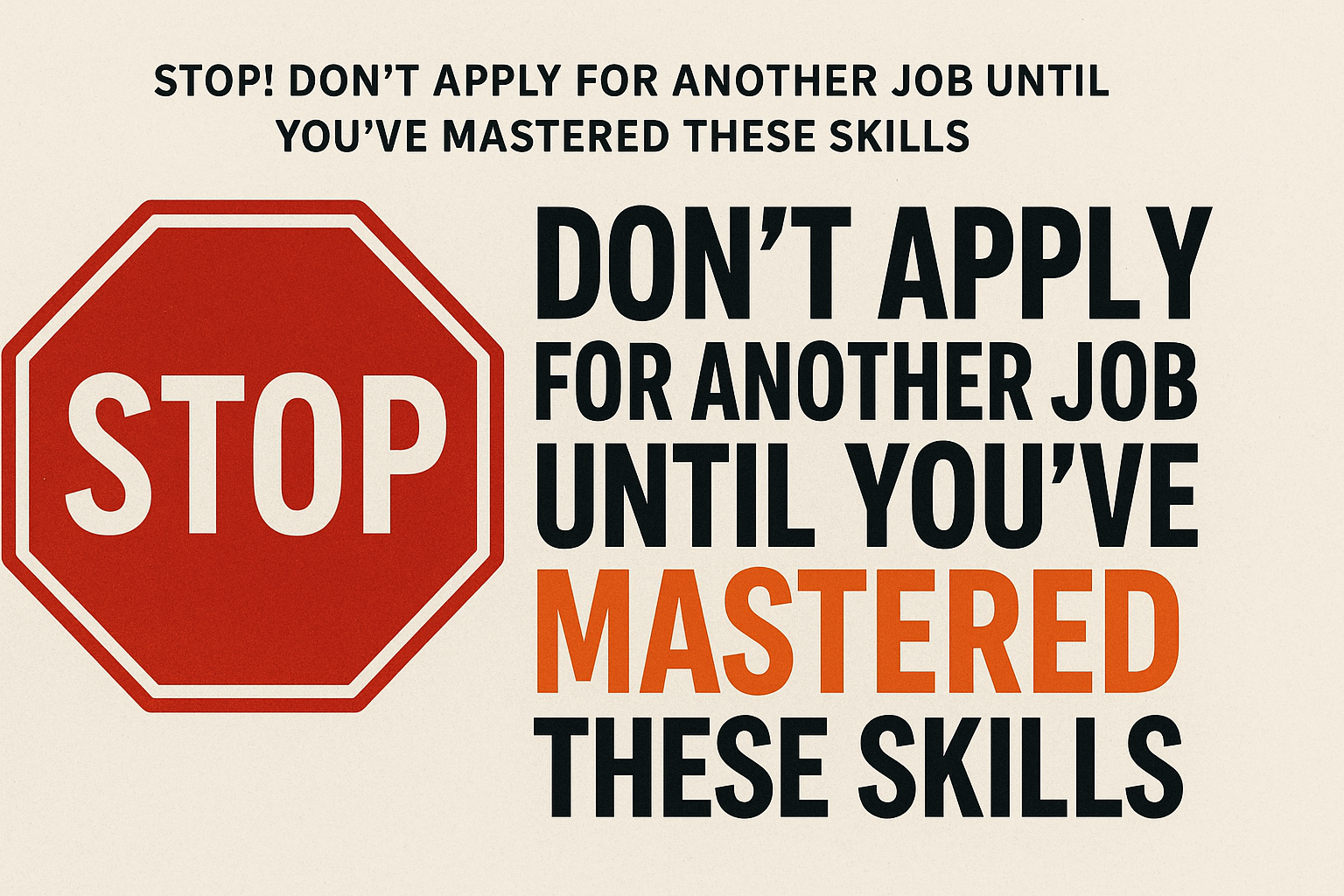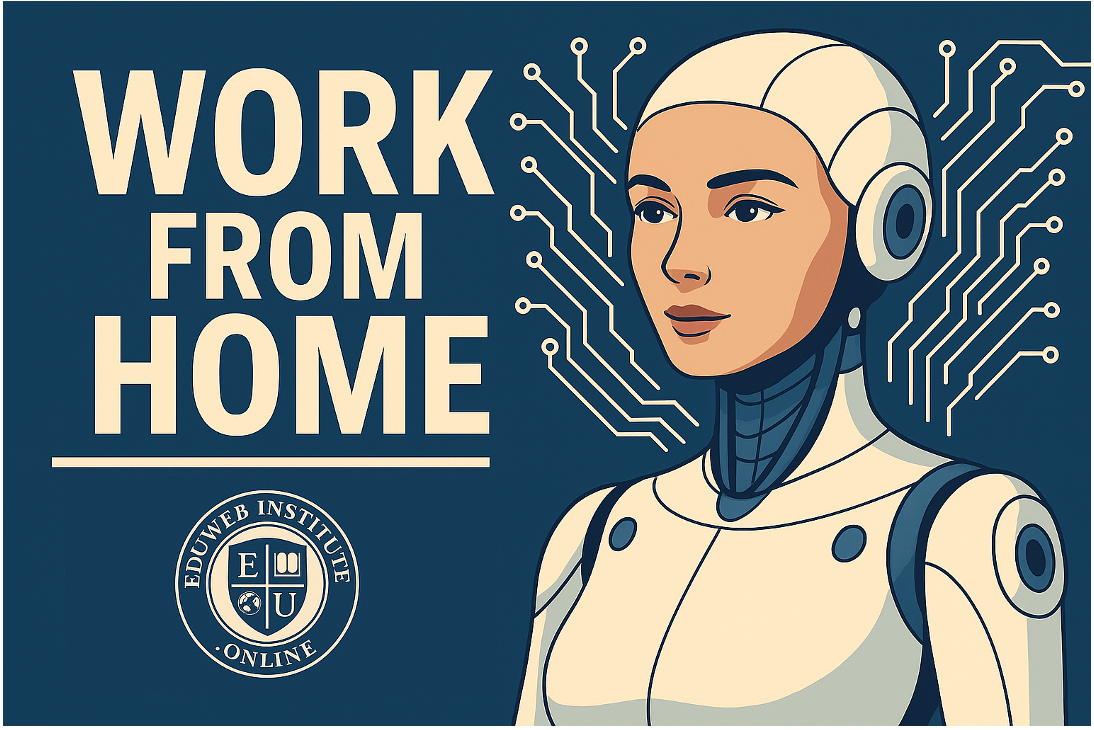Let’s be real for a moment: looking for a job in South Africa as a young person can feel like throwing your CV into a black hole. You apply, you wait, you pray – and still, nothing happens. It’s frustrating, demoralising, and it often feels like the system is set up against you.
I’ve been there too. A few years ago, I remember applying for over 20 jobs in one week – and not a single one got back to me. I had the qualifications. I had the hunger. But what I didn’t realise then was that I didn’t have the right skills. Not the ones they teach in school or varsity, but the practical, job-ready skills that employers are silently begging for.
Here’s the truth: most jobs today aren’t just about having a diploma or certificate. Employers are looking for people who can solve problems, communicate clearly, show up on time, and work well with others – whether it’s in an office, a workshop, or even online.
If you’re a young South African reading this and desperately trying to break into the job market, this article is for you. I’m not here to judge – I’m here to help. Before you send off another job application, let’s make sure you’re truly ready to stand out. Not just on paper, but in the ways that really matter.
In the next sections, I’ll walk you through the seven essential skills you must master before applying for any job – and don’t worry, I’ll also show you where you can learn them for free or on a tight budget.
Let’s get you job-ready – for real this time.
Great! Let’s continue with:
 Section 1: The Harsh Truth About the Current Job Market
Section 1: The Harsh Truth About the Current Job Market
Before we talk about what skills you need, let’s talk about why you need them.
Here in South Africa, youth unemployment is a big problem. According to Stats SA, over 4 in every 10 young people are jobless. That’s not just a number – that’s thousands of dreams delayed, confidence crushed, and families struggling to get by.
And the truth is, having a qualification isn’t enough anymore. I know so many young people who’ve worked hard, passed Grade 12, or even got their diplomas – yet they’re still sitting at home. It’s painful, and I know because I’ve seen it in my own family too. A cousin of mine graduated top of her class in tourism but spent two years unemployed, applying for anything she could find. She kept getting rejection after rejection. Why? Because when it came down to it, she didn’t know how to communicate professionally, write a proper email, or even handle an interview.
Here’s the thing most people don’t tell you: employers aren’t just hiring people who have papers – they’re hiring people who can perform.
That means they want people who are:
-
Reliable
-
Problem-solvers
-
Good communicators
-
Comfortable with basic digital tools
-
Professional in how they show up (even online)
Many times, you won’t get feedback on why your CV got ignored – but behind the scenes, it’s often because the recruiter saw something missing. And that “something” is usually a skill, not a certificate.
The good news? These skills are learnable. You don’t need to go back to university. You don’t need to spend thousands of rands. You just need time, intention, and the willingness to grow.
So before you apply for your next job, let’s pause and ask:
“Am I job-ready beyond just my qualifications?”
If you’re not sure how to answer that, don’t worry – that’s what the rest of this article is here to help you figure out.
Let’s jump into the 7 essential skills every young South African jobseeker needs – starting with a big one: communication.
Perfect! Let’s dive into the first essential skill:
 Skill #1: Professional Communication (Verbal & Written)
Skill #1: Professional Communication (Verbal & Written)
If there’s one skill that can instantly boost your chances of getting hired, it’s this: how you communicate.
I once had a friend who was brilliant – sharp thinker, hardworking, and motivated. But during interviews, he mumbled, didn’t make eye contact, and struggled to explain his thoughts clearly. Even though he had everything else going for him, companies kept saying, “We’ve decided to go with someone else.” Why? Because how you speak and write matters just as much as what you know.
 Why Communication Matters
Why Communication Matters
Whether it’s writing an email to a potential employer, answering a question in an interview, or greeting customers at the front desk – communication is everywhere. Employers are asking themselves, “Can this person represent us professionally?”
It’s not about speaking fancy English. It’s about being:
-
Clear
-
Polite
-
Confident
-
And respectful
Even a WhatsApp message to a manager needs to sound professional. If you write, “Hy. U stil lookng 4 sum1?” – that’s an instant red flag.
 A Quick Tip That Helped Me
A Quick Tip That Helped Me
I used to struggle with writing formal emails – I didn’t grow up writing those. What helped me was reading sample emails online and practicing them out loud. I’d write pretend cover letters, send mock emails to a friend, and even record myself answering interview questions. It felt silly at first, but it built my confidence.
 How to Build This Skill
How to Build This Skill
-
Read and write more: Even reading short articles or listening to podcasts will help your language and confidence.
-
Practice interviews: Use common questions like “Tell me about yourself” or “What are your strengths?”
-
Use templates: There are great free CV, email, and cover letter templates online – just search “free South African CV templates.”
-
Watch professional content: TED Talks, business YouTube channels, and interview walkthroughs can teach you tone, posture, and clarity.
Pro Tip: Start by fixing your email address. If you’re still using “killerboi123@email.com”, switch to a clean, simple one like thando.m@gmail.com. First impressions count!
Up next, we’ll talk about a skill that almost every job now requires, even if you’re not in IT…
Great! Let’s move on to the next crucial skill:
 Skill #2: Digital Literacy
Skill #2: Digital Literacy
In today’s world, if you don’t know how to use a computer or smartphone professionally, you’re going to struggle to land a job – even if it’s not in tech.
A few years ago, I helped a young guy named Sipho apply for an admin job. He had the right attitude and some experience helping in his uncle’s tuck shop. But when we got to the part of the application that asked for a Google Form submission and uploading his CV, he froze. He’d never used a file uploader before. Not knowing basic digital tools cost him an opportunity he was otherwise ready for.
 What is Digital Literacy?
What is Digital Literacy?
Digital literacy doesn’t mean becoming a programmer. It simply means being comfortable using technology in a work setting. This includes:
-
Sending professional emails
-
Using Google Docs, Word, Excel or Sheets
-
Joining Zoom or Teams meetings
-
Filling out online forms
-
Creating a PDF CV
-
Using WhatsApp or Telegram responsibly and professionally
Even retail jobs now require some digital knowledge – like clocking in using an app, or checking schedules via WhatsApp groups.
 Employers Are Watching This
Employers Are Watching This
When you apply for a job and say “I’m good with computers,” most employers will test that with a task. If you can’t open a spreadsheet or use basic formatting in a Word doc, they’ll move on quickly.
And if you’re doing remote interviews, they expect you to join a video call, switch on your camera, and know how to unmute yourself!
 How to Build This Skill
How to Build This Skill
Here are some great (and mostly free) ways to sharpen your digital skills:
-
Google Digital Skills for Africa: Free courses with certificates
-
GCF Learn Free: Learn Word, Excel, email and more in easy steps
-
Practice typing, formatting a CV, creating a Gmail account, and saving documents in folders
-
Ask a friend or family member to walk you through their work apps
Pro Tip: Practise sending your CV to yourself and checking the layout on your phone and computer – many hiring managers do exactly that.
Now that you’re building your communication and digital skills, let’s look at something employers value more than qualifications…
Perfect! Here’s the final part of the article:
✅ Conclusion: Skill Up Before You Step Out
Let’s be honest — job hunting in South Africa can feel like climbing a mountain with no shoes on. But here’s the thing: you are not powerless. Every time you choose to build a new skill, you’re tightening your laces, sharpening your tools, and making yourself more employable — not just for today’s job, but for tomorrow’s future.
It’s no longer enough to just send out CVs and hope for the best. Employers are looking for people who show initiative, who communicate well, who can adapt and grow. That can be you — but only if you put in the work.
I’ll never forget the moment things started changing for me. I stopped blaming the job market and started investing in myself. I treated learning like my part-time hustle. I took free online courses, joined a youth skills programme, and practised mock interviews with a friend. Within months, I walked into an interview with confidence – and finally heard the words: “You’re hired.”
You can have that moment too.
📣 So Here’s Your Next Step:
-
✅ Pick one skill from the list above and start improving it this week.
-
✅ Choose one free course or platform and commit to it for 7 days.
-
✅ Share this article with a friend or sibling – let’s grow together.
-
✅ Stop sending out CVs until you’ve sharpened your edge. Then? Go get it.
South Africa is full of challenges, yes – but also full of opportunity for those who are willing to learn, grow, and take action.
And remember this: your current situation is not your final destination. Keep building. Keep believing. Your breakthrough is coming.





